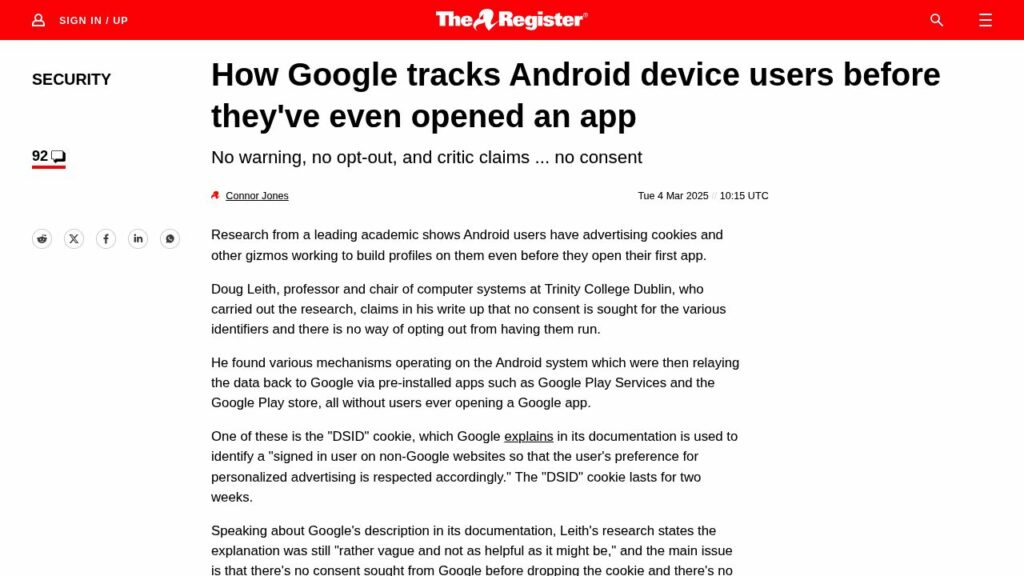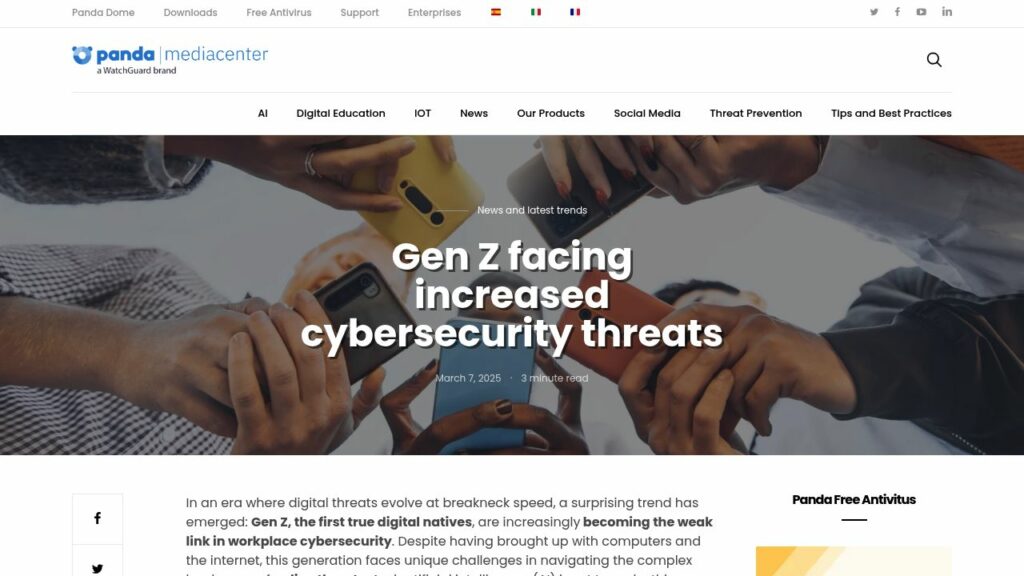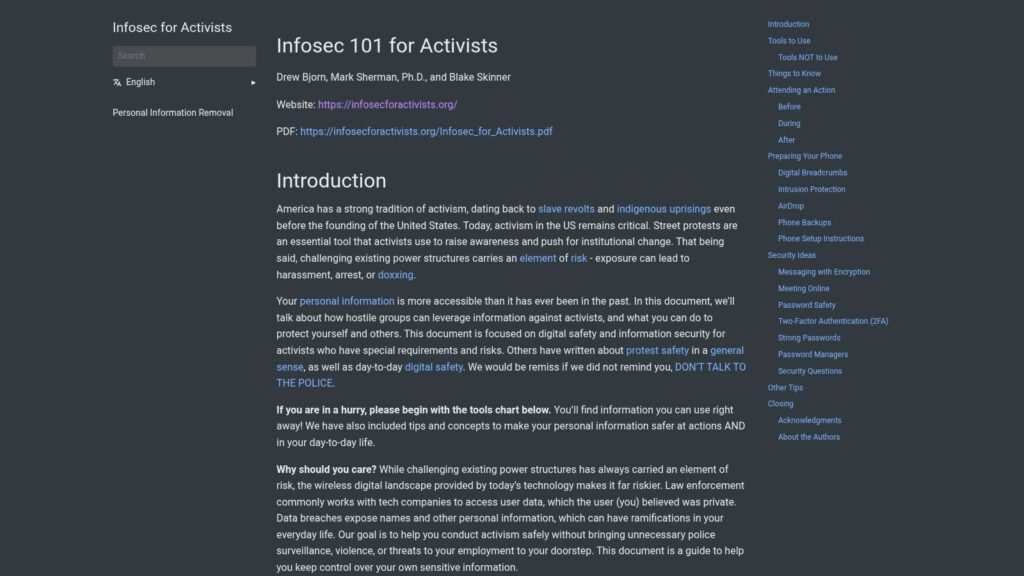Google’s ‘consent-less’ Android Tracking Probed by Academics • The Register
Google's Android tracking has been criticized by researchers for using identifiers to track users without consent. Research by Doug Leith from Trinity College Dublin highlights that data collection occurs before users open any apps, primarily through pre-installed services like Google Play. Key identifiers, such as the “DSID” cookie and Android ID, are created during the startup process and track users even after they log out, with no opt-out option available. Leith's findings suggest possible violations of data protection laws, which Google disputes, emphasizing a commitment to user privacy. Users have expressed frustration, especially regarding a recent system feature that scans images without consent.




